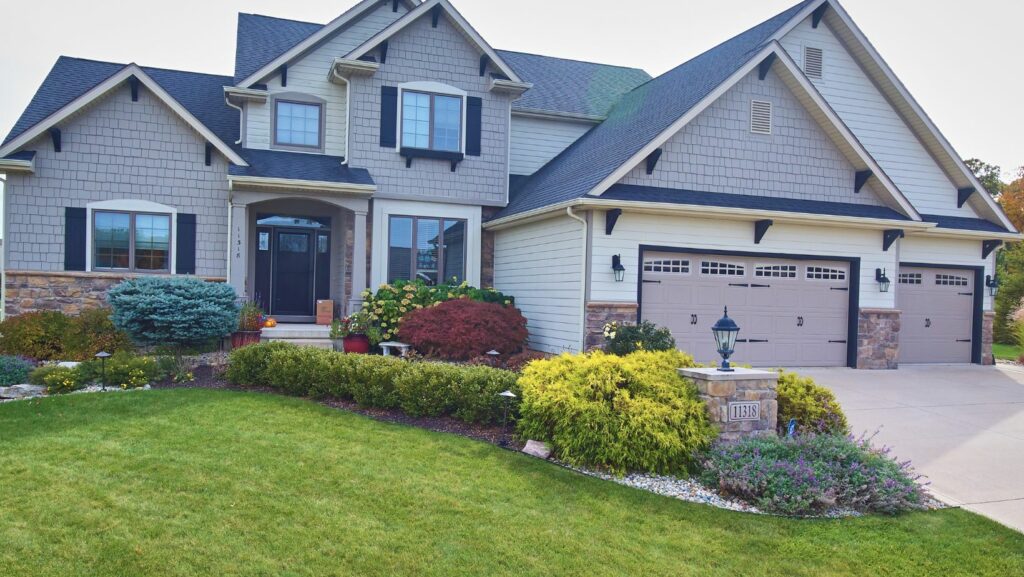Key Takeaways
- Growing Demand for Country Properties: The trend towards rural living has surged post-pandemic, driven by buyers seeking space, serenity, and a connection to nature.
- Diverse Property Types: Country living real estate includes various options such as farmhouses, estates, cottages, and cabins, each offering unique benefits aligned with different lifestyles and preferences.
- Community and Lifestyle Benefits: Embracing country living fosters a strong sense of community, promoting healthier lifestyles through outdoor activities and close-knit relationships among residents.
- Key Considerations for Buyers: Prospective buyers should evaluate location, property maintenance, and accessibility to essential services to ensure their investment meets lifestyle needs.
- Market Trends and Insights: Increased prices and competitive inventory levels indicate robust growth in the rural real estate market, reflecting changing buyer demographics and preferences, especially among younger individuals.
- Sustainability Focus: Eco-friendly homes and sustainability practices are increasingly popular among buyers, highlighting a shift towards self-sufficient living in rural areas.
In recent years, the allure of country living has captured the hearts of many. With its picturesque landscapes and serene environments, rural real estate offers a refreshing escape from the hustle and bustle of city life. Buyers are increasingly drawn to spacious properties that promise a connection to nature and a slower pace of living.
Country living real estate isn’t just about finding a house; it’s about embracing a lifestyle. From charming farmhouses to sprawling estates, these homes provide opportunities for gardening, outdoor activities, and a sense of community. As more people seek refuge from urban chaos, understanding the nuances of this market becomes essential for anyone looking to invest in a tranquil retreat. Whether it’s a weekend getaway or a permanent residence, country living promises a unique blend of comfort and adventure.
Country Living Real Estate
Country living real estate encompasses properties situated in rural areas, often characterized by wide-open spaces, serene environments, and scenic beauty. Potential buyers look for homes that provide a connection to nature and opportunities for outdoor activities, such as hiking, fishing, and farming. Many individuals value features like large yards, gardens, or proximity to parks.
Investing in country real estate often involves several factors, such as property type, land use, and location. Buyers may encounter different options, including single-family homes, farms, and even cabins. Each type of property offers unique benefits, accommodating various lifestyles and preferences.
Market trends indicate a rising demand for country homes, particularly post-pandemic, as people prioritize space and nature in their lifestyles. Affordability remains an essential aspect, as rural properties frequently offer lower price points compared to urban counterparts. Buyers examining this market should be aware of local real estate trends, zoning laws, and potential restrictions that might affect their purchasing decisions.
Prospective buyers can benefit from working with real estate agents specializing in rural properties. These professionals can offer valuable insights into local communities, market conditions, and investment opportunities. By understanding the nuances of country living real estate, individuals can make informed decisions that align with their lifestyle aspirations and financial goals.
Benefits Of Country Living
Country living offers numerous advantages, enhancing quality of life through natural beauty and serenity. Recognizing these benefits can guide potential buyers in their real estate decisions.

Tranquility And Space
Tranquility characterizes country living, providing a peaceful environment far from urban noise and chaos. Space becomes a vital aspect as properties often include large lots, enabling private outdoor areas for relaxation and recreation. Fresh air contributes to overall well-being, promoting a healthier lifestyle through increased physical activity and reduced stress levels. Access to nature’s beauty leads to opportunities for gardening, hiking, and other outdoor pursuits, fostering a deeper connection to the environment.
Community And Lifestyle
Community defines the rural experience, with close-knit relationships prevalent among residents. Engaging in local events and activities helps build connections, fostering a sense of belonging. Lifestyle choices often align with nature-oriented pursuits, such as sustainable farming, crafting, and outdoor sports, promoting healthy living habits. Opportunities for family-oriented gatherings or community involvement further enhance the social fabric, enriching daily life and creating lasting memories. This collective spirit can be more difficult to find in urban settings, making the rural lifestyle uniquely appealing.
Types Of Country Properties
Country properties encompass diverse living options, each providing unique benefits and lifestyle opportunities. Understanding these types helps buyers select the perfect retreat.
Farmhouses And Estates
Farmhouses represent traditional country living, often featuring large plots for agriculture. These homes commonly include expansive gardens, barns, and livestock facilities. Buyers appreciate the chance to cultivate crops or maintain animals, promoting self-sufficiency. Estates, on the other hand, are larger and may include various amenities like guest houses, recreational facilities, and waterfront access. Both types attract individuals seeking a blend of comfortable living and outdoor experiences.
Cottages And Cabins
Cottages and cabins offer charming small-space alternatives for those pursuing country living. Cottages typically feature cozy designs with gardens and proximity to scenic landscapes. They cater to those wanting a quaint weekend getaway or permanent residence in a rural setting. Cabins, often situated in wooded areas or near lakes, provide rustic experiences and connection to nature. These properties appeal to outdoor enthusiasts, with opportunities for hiking, fishing, and tranquility in a serene environment.
Considerations When Buying
Identifying key considerations is essential for prospective buyers in the country living real estate market. Evaluating various factors ensures that the investment aligns with personal preferences and lifestyle choices.
Location And Accessibility
Location plays a vital role in the value and desirability of country properties. Buyers should assess proximity to essential services such as grocery stores, hospitals, and schools. Rural properties might offer solitude, but convenience to urban amenities can enhance daily living. Consideration of road conditions and public transport options is crucial for ensuring accessibility, especially during inclement weather. Additionally, proximity to recreational activities—like hiking trails, lakes, and parks—can greatly influence satisfaction with the property.
Property Maintenance And Upkeep
Understanding property maintenance is crucial for rural homebuyers. Many country homes may require more upkeep due to their size and the surrounding landscape. Buyers should evaluate the state of the property’s systems, such as plumbing and heating, as well as structural integrity. Maintenance tasks often include landscaping, snow removal, and pest control, which can be more demanding in rural settings. Assessing the availability of local services for lawn care, snow plowing, or home repairs can ease the burden of upkeep, making the investment more manageable.
Market Trends In Country Living Real Estate
Country living real estate shows robust growth, driven by a shift in buyer preferences. Increased demand for rural properties stems from the desire for space, serenity, and outdoor access. Many buyers recognize the benefits of relocating from urban centers, seeking larger homes at lower prices in picturesque settings.
| Market Trends | Details |
|---|---|
| Price Appreciation | Rural home prices increased by 15% over the past year, reflecting heightened interest. |
| Inventory Levels | Lower inventory levels contributed to competitive bidding situations, with fewer homes on the market. |
| Buyer Demographics | Increased buyers aged 30-50 reflect a new generation embracing rural living. |
| Remote Work Influence | Growth in remote work facilitates longer commutes, driving interest in country properties. |
| Sustainability Focus | Eco-friendly homes and sustainable farming practices gain popularity among buyers. |
Real estate professionals report that buyers prioritize properties with land for gardening or homesteading. This trend aligns with a growing interest in self-sufficiency and sustainability. Properties featuring energy-efficient systems and space for livestock attract prospective buyers looking to enhance their rural lifestyle.
Investors express confidence in country living market potential. As urban life becomes increasingly congested, rural areas present opportunities for growth and development. Builder activity ramps up in these regions, catering to the influx of new residents seeking country homes.
Seasonal fluctuations also impact the country real estate market. It peaks in spring and summer, when buyers actively search for properties. Listing properties in these seasons often commands higher interest and quicker sales.
Understanding local market dynamics remains crucial for investors. Knowledge of specific regions, including local amenities and community features, enhances prospects for successful transactions. Engaging with knowledgeable agents ensures buyers stay informed about trends and opportunities.
Escape From Urban Life
Country living real estate offers a unique blend of tranquility and community that appeals to many seeking an escape from urban life. With diverse property types available and a growing demand for rural homes, individuals can find options that suit their lifestyle aspirations. The shift toward remote work has further fueled interest in these properties, making them a viable choice for both permanent residences and weekend retreats.
As buyers navigate this evolving market, understanding local dynamics and working with knowledgeable agents can make all the difference. Embracing country living not only enhances quality of life but also fosters connections to nature and community, creating lasting memories in a peaceful environment.


